October: A GOVERNMENT OVERWHELMED
October can rightfully be considered the straw that broke the camel’s back with regard to the expansion of Bolshevist influence in crucial spheres – firstly, the growth of their membership (now an estimated 2-300,000 people); and also in terms of securing 51 percent of the District Duma vote for Moscow – the new battleground – a catastrophic loss for the provisional government. The month also sees Lenin’s assault on the bourgeoisie with some of his most iconic writings, now openly calling for the overthrow of Kerensky’s regime, followed by his eventual return from hiding in Finland in order to consolidate the Bolshevik uprising.
The Third Coalition Government is set up – again, without the Bolsheviks, who, in Lenin’s absence, pick Trotsky to represent their Central Committee. Having received a go-ahead from Lenin, he condemns openly the Pre-Parliament – a sort of accountability mechanism (as some would naïvely refer to it) created at the All-Russian Democratic Conference at the beginning of October – declaring it a useless, procrastinating move serving bourgeois parliamentarianism.
Cases of general strikes have increased manifold, according to reports now being received by the government daily. A salient instance is Baku, where workers rose up in light of the introduction of new labor laws demanding collective employment. Towards the end of October, workers of the Obukhovsky factory stage a walkout numbering several thousand people, also calling for the overthrow of the government.
These events finally culminate in November with the creation of a body tasked with the overthrow of government, set up by Trotsky and dubbed the War and Revolutionary Committee (VRK). We are now days away from the course of Russian history changing forever.
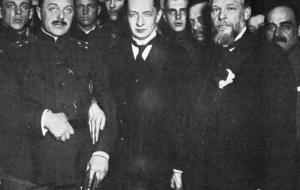
October 7, 1917
Earlier in September, the District Duma vote in Petrograd had earned the Bolsheviks some 33 percent of the vote, but in Moscow, the situation was markedly different. And that is where victory really counts now. In October, Kerensky hopes to consolidate all anti-Bolshevik forces there, and to relocate the capital for the purpose of forming a new government, opposed to the “imposters” in Petrograd. Therefore, as the Bolsheviks secure 51 percent of the District Duma vote - a crushing defeat, things are beginning to look bleak for the bourgeoisie.
In one of his essays, Lenin writes: “That vote was actually one of the most striking symptoms of a complete turnaround in public perceptions.” And he is not wrong. The SRs, who practically owned Moscow, have lost the trust of the people in their willingness to cosy up to the provisional government and Kerensky. In so doing, they further enflamed the Right/Left divide in the future capital. By the end of the summer, this polarization begins to work in favor of the Bolsheviks.
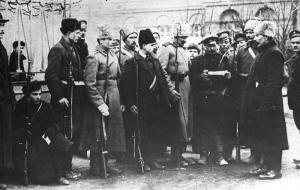
October 15, 1917
Lenin, still in hiding in Finland, writes a letter to the members of the Central and Executive Councils of the Bolsheviks of Moscow and Petrograd, where he unequivocally argues for the overthrow of the current government. “Procrastinating is criminal. Waiting for another Soviet Conference amounts to an infantile, embarrassing insistence on formality; a betrayal of the Revolution.” He goes on to say that any stalling would only endanger the spread of the global socialist revolution.
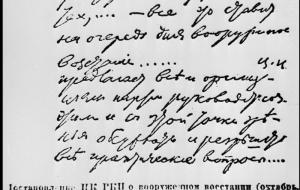
October 17, 1917
A closed Provisional Government session is held by Kerensky to discuss the issue of relocating the government to Moscow, as Petrograd becomes more and more volatile – not just because of the growing tide of Bolshevism, but because, for the first time, there is a real threat of invasion by the Germans.
Other questions are raised, all pointing to a catastrophic situation on the front line, with the lack of food being the pre-eminent factor. Soldiers are starving in the trenches, equipment and munitions are running low and the loss of morale has reached epidemic proportions. Everyone wants an armistice – something the German Empire offered numerous times, only for Kerensky to reject the proposals.
In Petrograd a decision is taken to cease all exports of food, while worrying news is also heard from southern Finland, where flour reserves are projected to last for a mere three days.
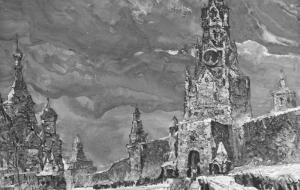
October 20, 1917
Lenin returns to Petrograd, where he is able to communicate more closely with his followers, consolidate the power of the Bolsheviks, and coordinate the future uprising against the Kerensky government.
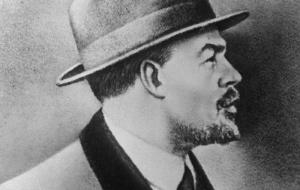
-
1 October
-
7 October
-
15 October
-
17 October
-
20 October